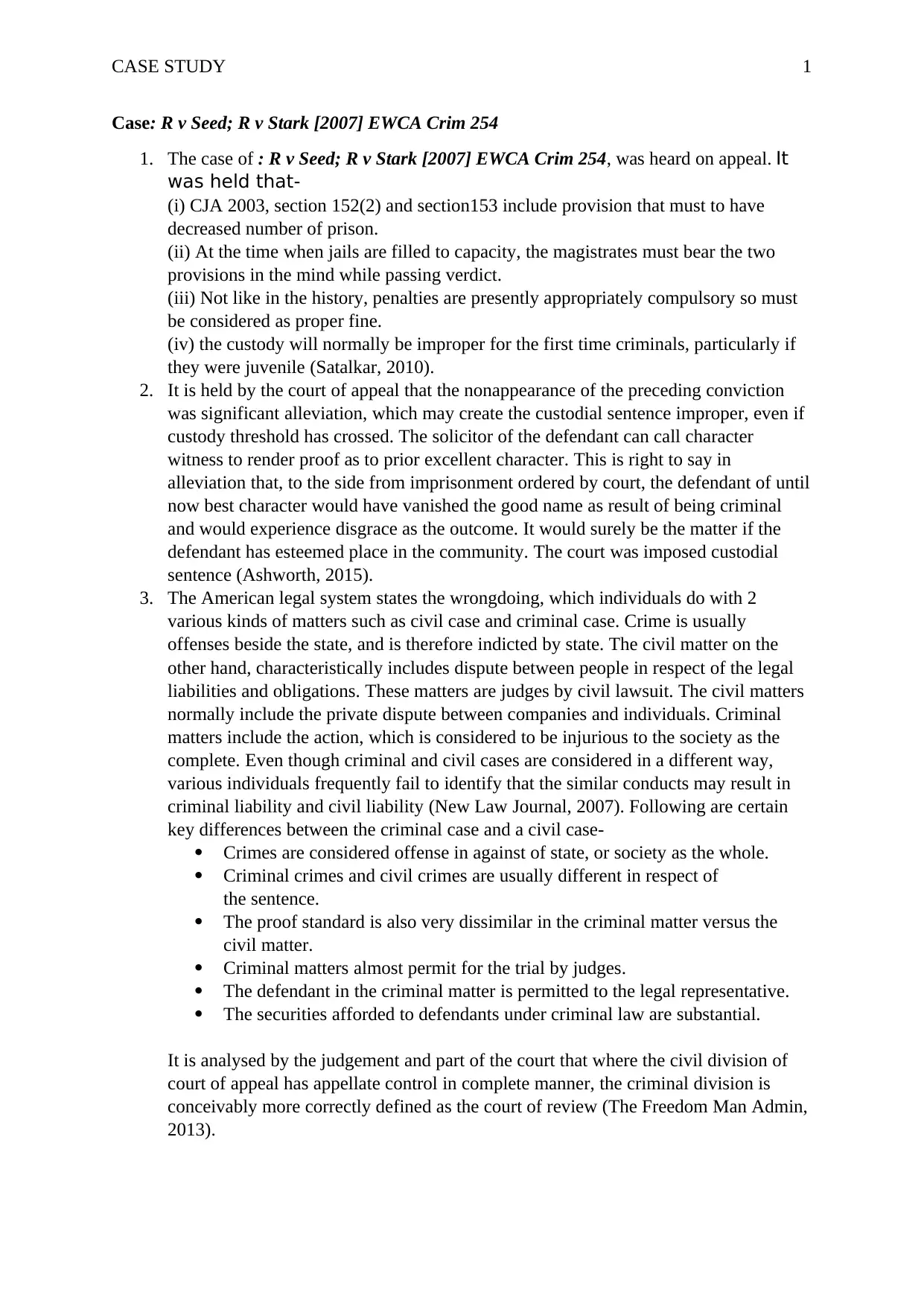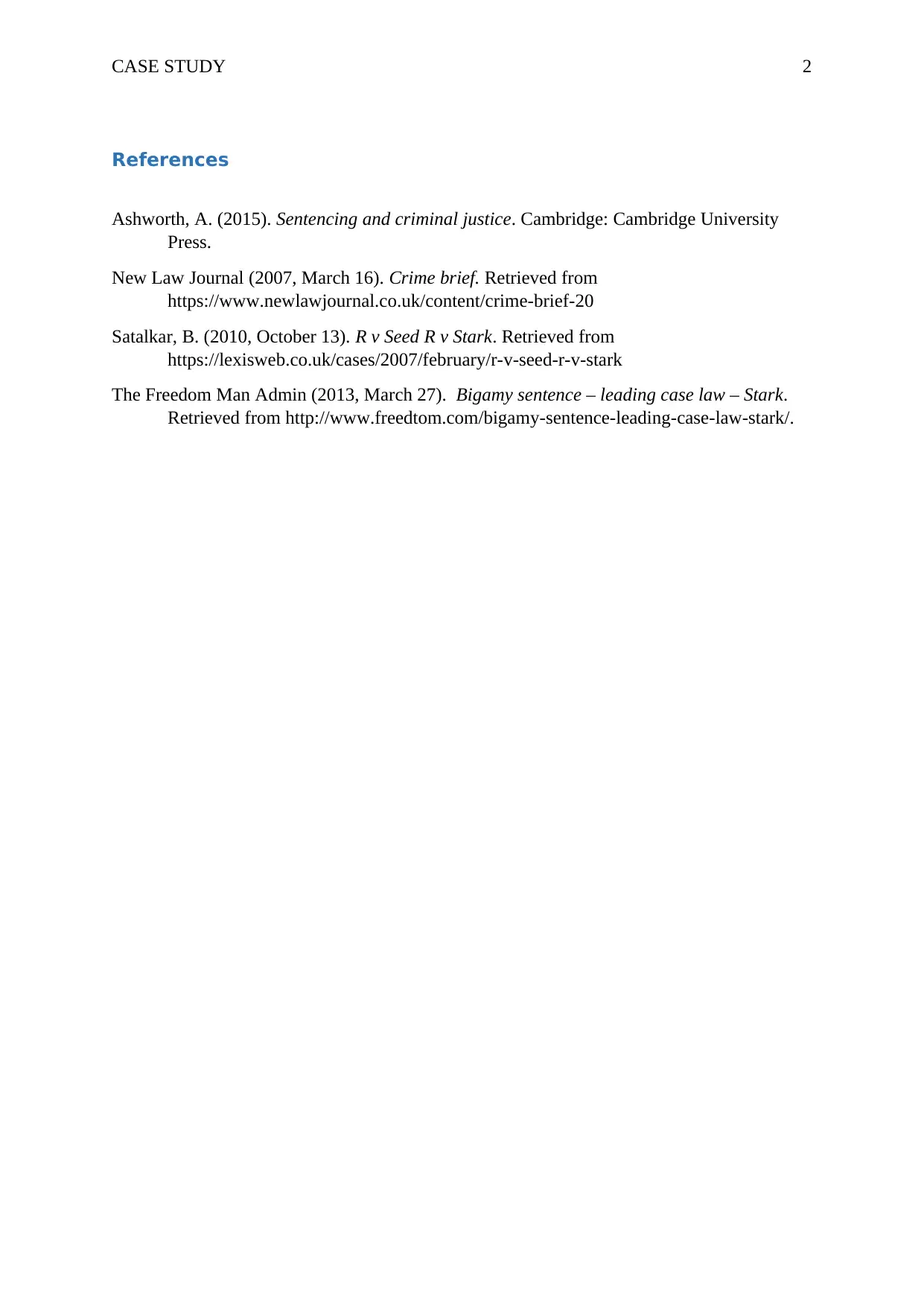LLB Criminal Law Case Study: R v Seed; R v Stark [2007] EWCA Crim 254
VerifiedAdded on 2023/04/21
|3
|655
|280
Case Study
AI Summary
This case study analyzes the criminal law case of R v Seed; R v Stark [2007] EWCA Crim 254, addressing key questions from the assignment brief. The case was heard on appeal, with the court considering sentencing guidelines and the significance of prior good character. The analysis includes a comparison between criminal and civil cases, highlighting differences in offenses, sentencing, standards of proof, and trial procedures. The assignment also evaluates three online sources related to the case, assessing their currency, authoritativeness, and scope. The student considers the political context of the decision and its potential controversial aspects. The study utilizes references to support the analysis and provides a comprehensive overview of the legal principles involved in the case.
1 out of 3




![[object Object]](/_next/static/media/star-bottom.7253800d.svg)